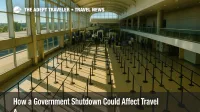Federal Aviation Administration (FAA)
The Federal Aviation Administration (FAA) is the governing body of all aircraft operations within the United States. Established as an independent agency of the United States Department of Transportation in 1958, the FAA has since provided the oversight and regulation of all U.S. commercial and general aviation, as well as aspects of unmanned aerial vehicles, commonly referred to as drones. They have broad authority over civil aircraft operations and ensure the safety of the nation’s airspace, which includes the regulations, certification, and enforcement of pilots and aircraft, air traffic, airman licensing, and safety management systems.
The FAA is responsible for establishing and enforcing rules to ensure safe flights and to protect travelers. This includes everything from aircraft inspection and maintenance to safety protocols and emergency responses. The agency works with airports and airlines to develop procedures that ensure aircraft travel is as safe and efficient as possible. This includes monitoring airspace and controlling altitudes, maintaining weather and traffic conditions, and regulating the instruments and equipment used on aircraft. The FAA also lays out and enforces the qualifications necessary for pilots and other crew members, as well as overseeing air facilities and air traffic control.
In addition to providing oversight and regulation of the U.S. aviation industry, the FAA also works to promote growth and innovation in the industry. This includes partnering with research and development projects, providing technical assistance to aircraft manufacturers, and testing emerging technology to ensure safety standards are met. The FAA also annually releases safety initiatives such as The National Plan for Integrated Airport Systems (NPIAS) and Performance-Based Navigation (PBN). The NPIAS is a comprehensive plan of airports that are deemed essential to the nation’s air transportation system and outlines the safety objectives, funding requirements, standardization, and investments required to ensure the nation’s aviation system is kept safe and efficient. PBN is a technology dedicated to improving navigation systems, increasing airspace efficiency, and reducing emissions.
Additionally, the FAA works to ensure U.S. aviation regulations are in compliance with international treaties and regulations. U.S. aircraft and airports must conform to the International Standardization of Air Traffic protocols as determined by the International Civil Aviation Organization (ICAO). The FAA also works with the Transportation Security Administration (TSA) to monitor the security of U.S. airspace and passengers. The role of the FAA in the U.S. travel system is vital and its oversight and regulations are paramount in maintaining the highest standard of safety for all travelers.
The FAA is constantly conducting research and analyzing data to ensure the highest level of safety. They conduct regular inspections of facilities, review and approve new technology, monitor equipment and aircraft, and review pilot training and experience. The FAA also monitors and controls the air traffic system, keeping aircraft in compliance with all regulations. The agency sets standards and procedures for air traffic controllers, pilots, mechanics, and airplanes. They even assist airports in combating turbulence and inclement weather that can be dangerous for aircraft. The FAA also sets standards for aviation noise and has legal authority over airport noise control plans.
Overall, the Federal Aviation Administration is critical to the safety of U.S. travel. They provide comprehensive oversight and regulations to ensure safe and efficient flights. The FAA’s research and data analysis helps to maintain the highest standards of safety for travelers which is of utmost importance. By ensuring the safety of U.S. aircraft and the efficacy of the air travel system, the FAA helps to provide travelers with peace of mind.
U.S. Airlines Pilot Hiring Rule Ends DEI Programs Feb 2026

El Paso Airspace Shutdown Tied to Drone Laser System

Federal Aviation Administration SAFO 26001 Warns U.S. Flights of Rocket Debris

FAA Safety Oversight Office Created In Major Reorganization

US ATC Radar Upgrade Contracts Awarded to RTX, Indra
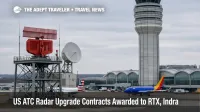
House Committee Backs U.S. Air Traffic Control Shutdown Bill
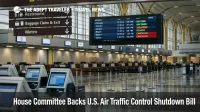
DOT AAM Strategy Sets U.S. eVTOL Rollout Path

Venezuela Airspace Warning Forces Flight Reroutes
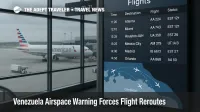
FAA Mechanic Grant Delays Risk Worsening U.S. Shortage
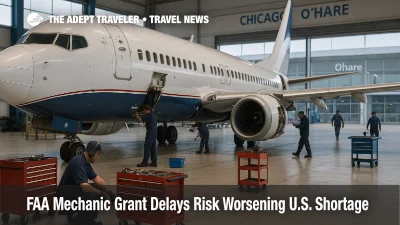
US Air Traffic Control Overhaul Common Platform
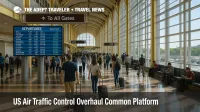
What Ending the Shutdown Means for Air Travel
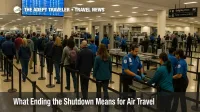
FAA To Cut U.S. Air Traffic 10% In 40 Markets Starting Friday
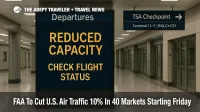
DOT Secures $111M To Extend Essential Air Service
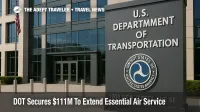
FAA Orders Newark Ground Stop Amid Shutdown Staffing
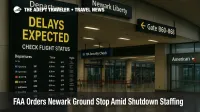
Shutdown Triggers Thousands Of U.S. Flight Delays Monday

Shutdown Spurs ATC Gaps, 8,000 Delays on Sunday
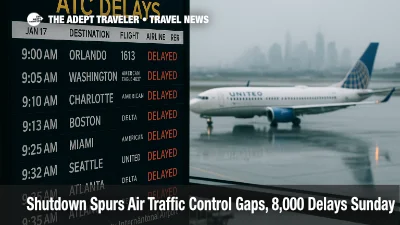
Shutdown hasn't spiked delays, but FAA staffing is a risk
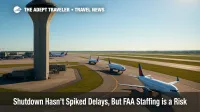
FAA: Controller absences fueling delays during shutdown
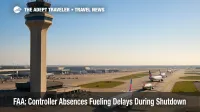
FAA lifts Boeing 737 MAX production cap to 42 per month
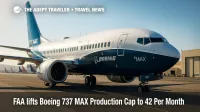
Government shutdown squeezes U.S. air travel
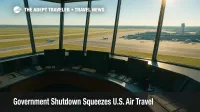
Warning to air traffic controllers: sick-outs risk jobs

FAA staffing shortages slow flights as shutdown deepens
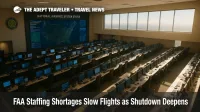
FAA staffing and shutdown: Rolling delay programs likely
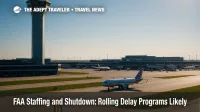
Controller sick calls climb during shutdown, putting new pressure on air travel
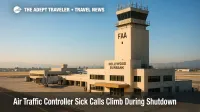
How a government shutdown could affect travel
